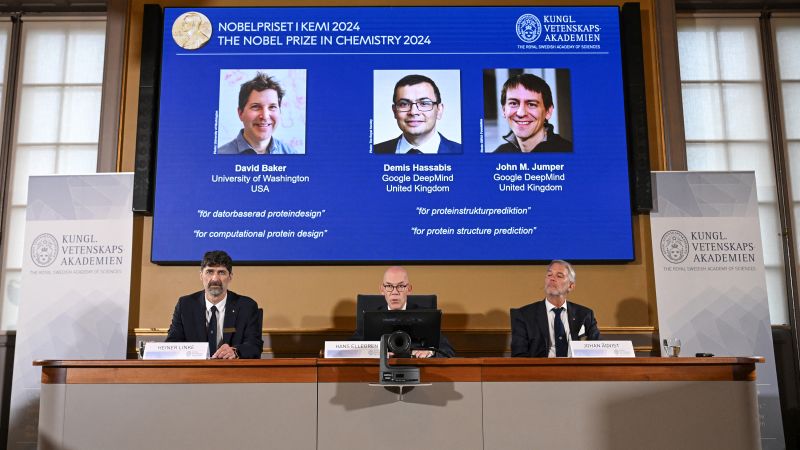This week, the Nobel prizes for physics and chemistry both highlighted the development and application of artificial intelligence, showcasing the significant impact of AI in the scientific community. The recipients of the prizes, including John Hopfield and Geoffrey Hinton in physics, and Demis Hassabis, John M. Jumper, and David Baker in chemistry, were recognized for their groundbreaking work that laid the foundation for modern artificial intelligence.
There is a notable contrast in the views of some of the AI pioneers who were awarded the Nobel prizes. While Geoffrey Hinton has been vocal about the existential risks posed by superhuman intelligence and its potential to manipulate people, Demis Hassabis, on the other hand, remains optimistic about the prospects of AI. Hassabis envisions a future where AI brings numerous benefits that need to be evenly distributed across society, painting a picture of a utopian world shaped by benevolent bots.
The Nobel committee’s recognition of these AI pioneers sheds light on the practical applications of AI in the scientific realm. Rather than focusing on speculative futuristic scenarios promoted by Big Tech companies, the awards emphasize the real-world impact of AI in fields such as protein structure prediction and biochemistry. The committee’s approach reflects a more pragmatic and grounded view of AI, downplaying the sensationalized narratives often propagated by tech executives.
The chemistry prize recipients utilized AI to decode protein structures, which showcases the immense potential of artificial intelligence in advancing scientific research and discoveries. By highlighting the technical and instrumental role of AI in the background, the Nobel committee presents a more down-to-earth perspective on the technology, emphasizing its practical utility rather than its speculative implications. This approach provides a more comprehensive understanding of AI’s significance in driving scientific progress.
The Nobel Prize’s acknowledgment of AI pioneers signifies a shift towards recognizing the tangible contributions and advancements made in the field of artificial intelligence. By focusing on the practical applications and impact of AI in scientific research, the awards offer a more nuanced and balanced perspective on the technology, steering away from the grandiose narratives often associated with AI. The committee’s acknowledgment of AI as a valuable tool for researchers underscores the importance of AI in driving innovation and progress in diverse fields of study.
In conclusion, the Nobel prizes for physics and chemistry awarded to AI pioneers highlight the transformative impacts of artificial intelligence on scientific research and discovery. The contrasting views of the recipients on the future implications of AI reflect the ongoing debate surrounding the technology’s potential risks and benefits. The committee’s pragmatic approach to recognizing the practical applications of AI underscores its significance as a tool for driving progress in various scientific disciplines. By emphasizing the real-world impact of AI, the Nobel committee offers a more grounded perspective on the technology, showcasing its instrumental role in advancing scientific knowledge and understanding.


